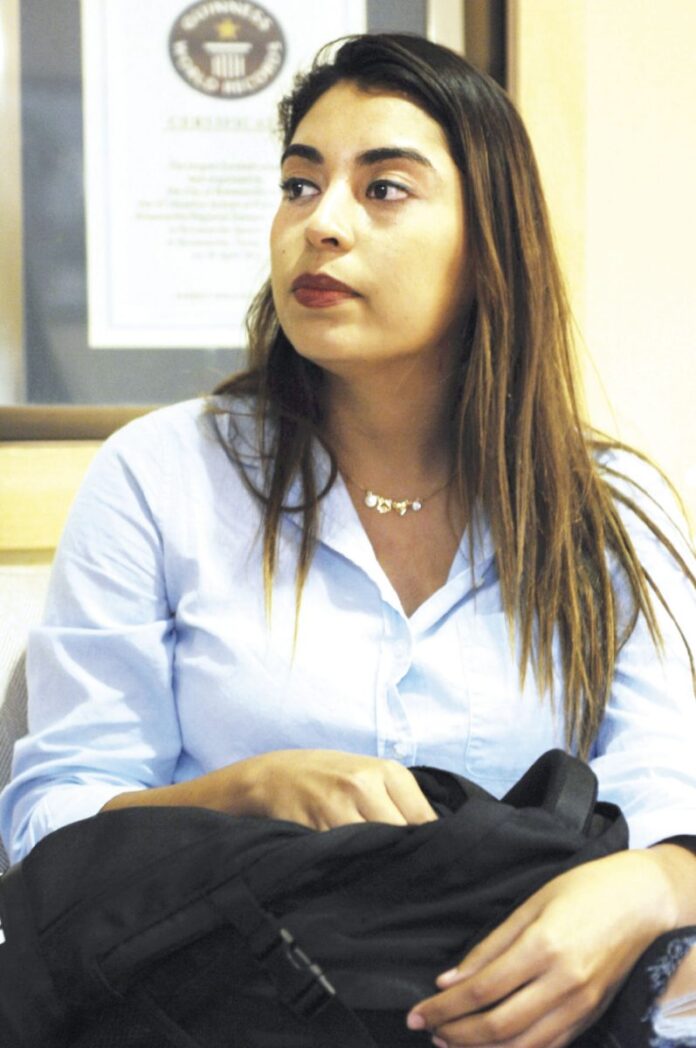BROWNSVILLE — Yanelly Palomo did not find out she was an undocumented immigrant until she started applying for colleges.
Palomo, a senior majoring in biology at the University of Texas Rio Grande Valley, said when she started applying for schools, scholarships or even financial aid she realized she didn’t have things like a social security number to receive federal aid.
Palomo said DACA, or the Deferred Action for Childhood Arrivals program, was almost like a birthday present to her because the program was made available in 2012.
“When it was my senior year (of high school), I had all these plans,” Palomo said. “I already knew what classes to take, what programs to do whenever I got to college. I already had a set deadline.”
Palomo said out of all her siblings, she is the only one who is a DACA recipient.
On Tuesday, Palomo was in her genetics class when she received a text that President Donald Trump confirmed his plans to end the DACA program. As she read the text, for a moment, she was in denial about DACA ending.
“It’s like (Trump) could basically just end someone’s life. Not being able to work. Not being able to go to school. So you’re just basically stuck not being able to do anything. It’s scary and it’s frustrating,” Palomo said.
Brownsville Mayor Tony Martinez said he’s very concerned because he believes six months for Congress to visit this issue is a short amount of time.
“That’s a very difficult position to put some of these young people in, and it’s just not fair,” Martinez said. “To me, I always try to point the balancing test of fairness. Put yourself in their shoes. … That’s not fair. Life has its own challenges without adding more to it. What fault do these kids have? … We have to take care and protect our children. Someone’s got to and we all have to.”
When Trump was elected, Palomo would consult the news on a daily basis to check on DACA’s status.
“I’m going to be graduating this fall not knowing if I’m going to be able to use my degree or apply to dental school,” Palomo said. “I tried really hard to pay for school, to try to keep my grades up. So right now I have the GPA to get into dental school. I have the research experience; I have everything. I just won’t have the (legal) status to be able to do it.”
The Trump Administration announced Tuesday that it would do away with the DACA program — implemented by executive order by President Barack Obama — that protects hundreds of thousands of young children who were brought to the United States illegally. The program has granted nearly 800,000 young immigrants a reprieve from being deported. It has also allowed them to work in the U.S. by giving them access to two-year work renewable permits.
Palomo said she has been paying for school out of her own pocket. She said she does this because her parents can’t really afford to help out.
“A lot of people don’t understand that we’re not taking other people’s opportunities. We don’t get federal aid,” Palomo said. “The work permit is there to help you so you can work and pay for school. Certain scholarships don’t even allow you to apply for them because of your (legal) status. So we’re not taking anybody else’s (financial) aid. We’re not harming anybody. Most of us are just students trying to better our future, better ourselves, to better our families.”




